Faculty Publications
St. Jerome's University faculty members participate in a broad range of research projects in a variety of disciplines. The following list represents the books that have been authored or edited by our faculty. These books are available in the St. Jerome’s University Library. For a full list of publications produced by individual faculty members, please refer to the web directory and search by individual names: https://www.sju.ca/directory
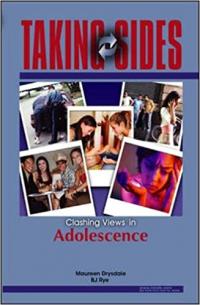 Link to Catalogue
Link to Catalogue
|
Drysdale, Maureen, and B.J. Rye. Taking Sides: Clashing Views in Adolescence. Dubuque, IA: McGraw-Hill, 2007. Taking Sides: Clashing Views in Adolescence presents current controversial issues in a debate-style format designed to stimulate student interest and develop critical thinking skills. Each issue is thoughtfully framed with an issue summary, an issue introduction, and a postscript. An instructor’s manual with testing material is available for each volume. USING TAKING SIDES IN THE CLASSROOM is also an excellent instructor resource with practical suggestions on incorporating this effective approach in the classroom. Each TAKING SIDES reader features an annotated listing of selected World Wide Web sites and is supported by our student website, www.mhcls.com/online. [Source: Amazon.ca] |
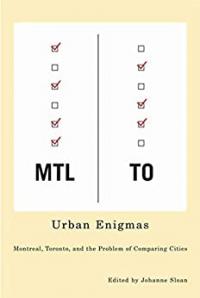 Link to Catalogue
Link to Catalogue
|
Sloan, Johanne, and Kieran Bonner, eds. Urban Enigmas: Montreal, Toronto, and the Problem of Comparing Cities. Montreal, QC: McGill-Queen's University Press, 2007. The practice of comparison is implicit in every act of imagining, representing, and studying urban experience. Urban Enigmas contributes to recent interdisciplinary interest in cities by introducing comparison as a key methodology for urban cultural analysis. Contributors, part of the collaborative research project The Culture of Cities: Montreal, Toronto, Dublin, and Berlin, address theoretical and methodological aspects of comparison, while case-studies examine the mutually constituted identities of Montreal and Toronto through examples of travel writing, public art, film festivals, theatrical performances, diasporic communities, ethnic festivals, and urban media. Comparison is shown to be not only something performed by experts but a deeply embedded, everyday social practice that contributes to the mutable identities of cities. Urban Enigmas demonstrates that the accumulation of urban actions, encounters, experiences, and relationships create distinctive patterns that make it possible to recognize the particularity of cities. [Source: publisher's website] |
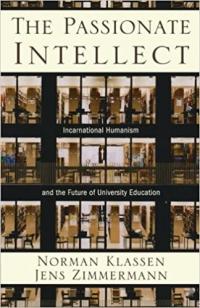 Link to Catalogue
Link to Catalogue
|
Klassen, Norm, and Jens Zimmerman. The Passionate Intellect: Incarnational Humanism and the Future of University Education. Grand Rapids, MI: Baker Academic, 2006. In The Passionate Intellect, Norman Klassen and Jens Zimmermann take up the theme of humanism and put it into the context of changing commitments in the institution of the university from the Middle Ages through the Enlightenment to postmodernity. Citing evidence and discussion of an institution in crisis, the authors argue for the relevance of faith commitment as part of the life of the mind and of a viable humanism. This is not a "how to choose a Christian college" book or a "hanging on to your faith through college" book. Rather, it offers students and educators an understanding of what is happening on the college or university campus. How did we get where we are, where values such as skepticism, secularism, consumerism, and pragmatism seem to dominate the landscape? And how does a Christian appropriately engage the intellectual life of the university without withdrawing into sectarianism? The authors emphasize the continued value of the university and seek to present a vision of what its intellectual culture should become in order to serve the greatest benefit to all students and scholars. The Passionate Intellect is written in the first instance for Christian students who may be uncertain how to affirm intellectual endeavor in general and how to negotiate the ideological terrain of the contemporary university. Other students, particularly those in the humanities or with a humanistic outlook, will also find that The Passionate Intellect provides a means of contextualizing disciplinary issues within a broader framework. A unique feature of the book is the authors' "Neohumanist Manifesto," a statement of faith that seeks to foster a healthier worldview and bring together an understanding of rationality, texts, and personal identity. [Source: publisher's website] |
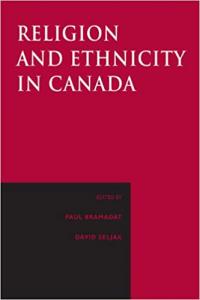 Link to Catalogue
Link to Catalogue
|
Bramadat, Paul, and David Seljak. Religion and Ethnicity in Canada. Toronto, ON: Pearson Longman, 2005. As the leading book in its field, Religion and Ethnicity in Canada has been embraced by scholars, teachers, students, and policy makers as a breakthrough study of Canadian religio-ethnic diversity and its impact on multiculturalism. A team of established scholars looks at the relationships between religious and ethnic identity in Canada's six largest minority religious communities: Hindus, Buddhists, Sikhs, Jews, Muslims and practitioners of Chinese religion. The chapters also highlight the ethnic diversity extant within these traditions in order to offer a more nuanced appreciation of the variety of lived experiences of members of these communities. Together, the contributors develop consistent themes throughout the volume, among them the changing nature of religious practice and ideas, current demographics, racism, and the role of women. Chapters related to the public policy issues of healthcare, education and multiculturalism show how new ethnic and religious diversity are challenging and changing Canadian institutions and society. Comprehensive and insightful, Religion and Ethnicity in Canada makes a unique contribution to the study of world religions in Canada. [Publisher's website] |
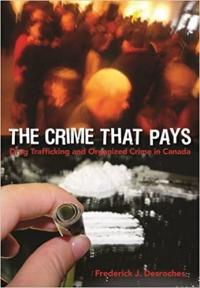 Link to Catalogue
Link to Catalogue
|
Desroches, Frederick John. The Crime That Pays: Drug Trafficking and Organized Crime in Canada. Toronto, ON: Canadian Scholar's Press, 2005. The Crime That Pays is a study of higher-level drug syndicates and organized criminals who have achieved huge incomes and status in their deviant occupation. Based on interviews with drug couriers, drug investigators, and 70 higher-level drug traffickers, the book describes the characteristics of offenders, their modus operandi, the entrepreneurial aspects of organized crime, and the significance of friendship, kinship, race, and ethnicity in the development of criminal networks. Most of the dealers in this study operated at the wholesale level for years, had realized huge profits, and lived extravagant lifestyles. For many, their arrest occurred only after the police had undertaken a sophisticated and proactive criminal investigation that took years to complete. Included in the text are an analysis of the police strategies used to combat drug trafficking and the social policy implications from this and other research studies. The book includes original research both on the RCMP and on higher-level drug trafficking. Also included are analyses of Canadian drug laws and a critique of social policy relating to drug use and drug trafficking. [Source: publisher's website] |
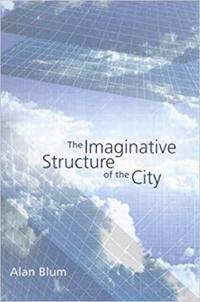 Link to Catalogue
Link to Catalogue
|
Blum, Alan. Imaginative Structure of the City. Edited by Kieran Bonner, and Will Straw. Montreal, QC: McGill-Queen's University Press, 2003. In The Imaginative Structure of the City Alan Blum explores the symbolic and imaginative nature of the city as a vital part of everyday life in modern civilization. He introduces the city as a community that must struggle to maintain its collective identity against typical problems - problems that threaten to fragment the city's sense of itself. Blum's distinctive form of theoretical inquiry pushes the reader to move beyond conventional ways of thinking about familiar urban issues in answering such fundamental questions as, How does a city exist? How do its inhabitants define their relationship to it? Who is entitled to speak for it? What is its symbolic nature? In what way does the city function as a focus of attempts to resolve social problems such as alienation, participation, and community? In what ways do night and nighttime affect our relationship to it? How is it possible to speak of a city as both exciting and alienating? [Source: Publisher's website] |
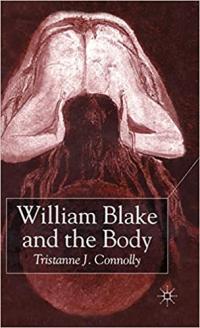 Link to Catalogue
Link to Catalogue
|
Connolly, Tristanne J.. William Blake and the Body. Hampshire, UK: Pagrave Macmillan, 2002. William Blake and the Body re-evaluates Blake's central image: the human form. In Blake's designs, transparent-skinned bodies passionately contort; in his verse, metamorphic bodies burst from each other in gory, gender-bending births. The culmination is an ideal body uniting form and freedom. Connolly explores romantic-era contexts like anatomical art, embryology, miscarriage and twentieth-century theorists like those of Kristeva, Douglas, Girard to provide an innovative new analysis of Blake's transformations of body and identity. [Source: Publisher's website] |
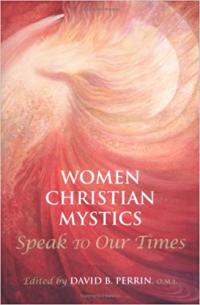 Link to Catalogue
Link to Catalogue
|
Perrin, David. Women Christian Mystics Speak to our Times. Franklin, WI: Sheed & Ward, 2001. Women Christian Mystics Speak to Our Times is an ambitious collection of essays by leading scholars that connects the modern world with the timeless wisdom of women such as Catherine of Siena, Hildegard of Bingen, Thérèse of Lisieux, Mary of Bizye, Julian of Norwich, Teresa of Avila, Birgitta of Sweden, Hadewijch of Brabant, Agnes of Blarmbekin, Mechthild of Magdeburg, Marguerite de Porete, and Catherine of Genoa. While emphasizing the holy lives of these women, this book also reveals their lasting contributions to theology and spirituality. Bound by a common belief that women Christian mystics have much to teach us today, these accessible essays are geared toward classrooms and educated lay readers. [Source: Amazon.com] |
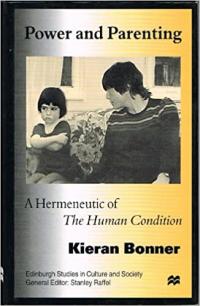 Link to Catalogue
Link to Catalogue
|
Bonner, Kieran. Power and Parenting: a Hermeneutic of the Human Condition. New York, NY: St. Martin's Press, 1998. Sociologist and parent Bonner argues that the dominant discourse on parenting, which calls for enhancing mastery and control, fails to capture the authentic experience by not coming to terms with the condition of action itself. He draws on various theories of power, descriptions of parenting, cultural representations of parenting, and parenting experts. His conclusion is that parenting is best understood as an ethical-practical activity based on wisdom rather than a technical-productive activity based on technique. Annotation c. by Book News, Inc., Portland, Or. [Source: Amazon.ca] |
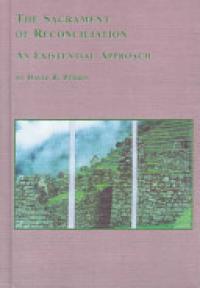 Link to Catalogue
Link to Catalogue
|
Perrin, David. Sacrament of Reconciliation: An Existential Approach. Lewiston, NY: Edwin Mellen Press, 1998. Perrin (theology, Saint Paul U., Ottawa) wastes no time bemoaning the decline of the Catholic rite known familiarly as Confession since Vatican II, or what he sees as the more important impoverishment of the sense of the sacred in the wider church and society. Rather he takes on the task of rebuilding the ceremony, drawing heavily on Mircea Eliade's work on symbols and their mediating role in the interaction between the sacred and profane. He explains his existential and anthropological approach, examines Christian symbols and their relation to earlier and other symbolic universes, and rethinks the Christian reconciliation and its symbolic and sacramental enactment. {Source: Amazon.ca] |